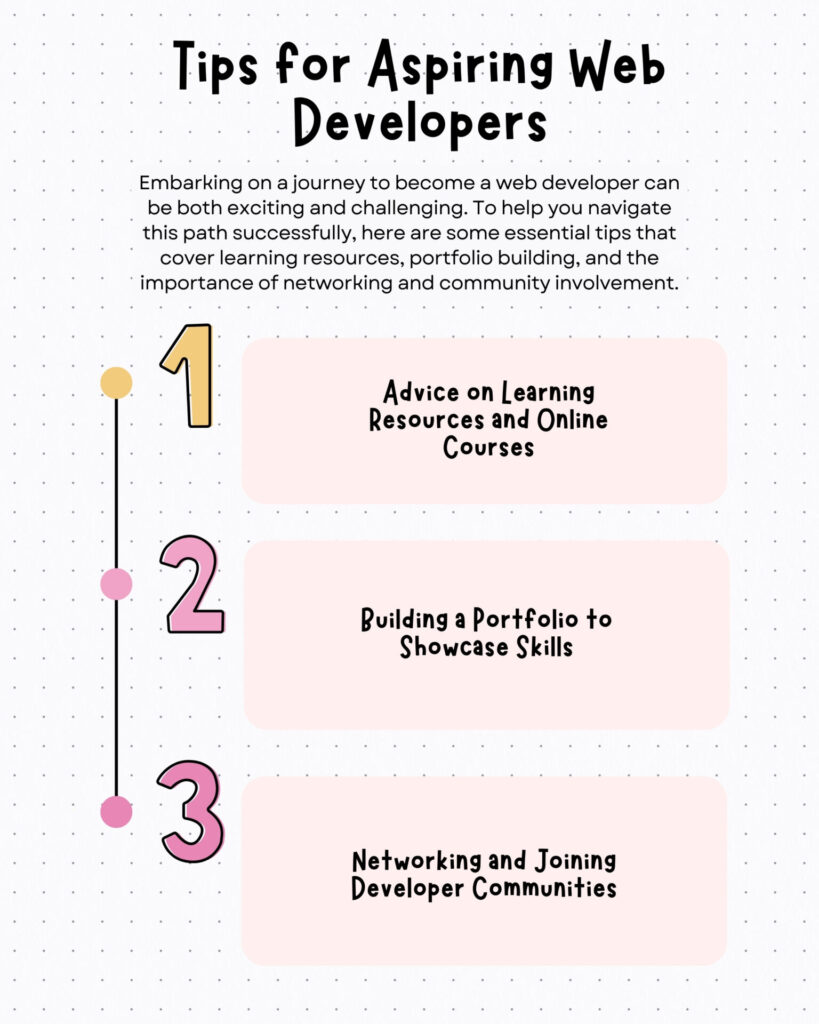Discover Is Being A Web Developer Hard?. Learn about the skills needed, common obstacles, and the fulfilling aspects of a career in web development. Find out if this dynamic field is the right fit for you.
Introduction
In today’s digital age, web development has become a sought-after career path, attracting many with its promise of creativity, problem-solving, and innovation. However, one common question arises: “Is being a web developer hard?” The answer is multifaceted, as the journey to becoming a successful web developer involves a blend of technical skills, continuous learning, and adaptability. This introduction delves into the various aspects of web development, shedding light on the challenges and rewards that come with this dynamic profession. Whether you’re considering a career change or just starting, understanding what it takes to be a web developer will help you navigate this exciting field with confidence.
Is Being A Web Developer Hard?
Web development is a dynamic and rewarding career, but it’s not without its challenges. Understanding the different aspects of web development and the skills required can help you gauge the difficulty of this field. Let’s explore the challenges faced by web developers, break down web development into different areas, and address the learning curve, time investment, and the importance of problem-solving and critical thinking skills.
Challenges Faced by Web Developers
Web developers encounter a variety of challenges in their work. These challenges can range from technical issues to design and usability concerns. Some common challenges include:
- Keeping Up with Technology: The web development field is constantly evolving with new frameworks, libraries, and tools. Staying current requires continuous learning and adaptation.
- Cross-Browser Compatibility: Ensuring that websites function correctly across different browsers and devices can be tricky and time-consuming.
- Performance Optimization: Developers must ensure that websites load quickly and perform efficiently, which involves optimizing code and managing resources effectively.
- Security: Protecting websites from cyber threats and ensuring data security is a critical and challenging aspect of web development.
Breaking Down Web Development Areas
Web development can be divided into three main areas: front-end, back-end, and full-stack development. Each area has its own set of challenges and requires different skill sets.
- Front-End Development: Front-end development focuses on the client side of web applications. This involves creating the visual elements and user interface that users interact with. Technologies used in front-end development include HTML, CSS, and JavaScript, along with frameworks like React, Angular, and Vue.js.
- Challenges: Front-end developers must ensure that websites are visually appealing, responsive, and accessible. They also need to handle browser compatibility issues and optimize the user experience.
- Back-End Development: Back-end development deals with the server side of web applications. This involves managing databases, server logic, and application integration. Common back-end languages include Python, Ruby, PHP, and Java, along with frameworks like Django, Ruby on Rails, and Node.js.
- Challenges: Back-end developers need to ensure that the server, application, and database communicate effectively. They must handle data storage, retrieval, and security, as well as optimize server performance.
- Full-Stack Development: Full-stack developers have expertise in both front-end and back-end development. They can build complete web applications from start to finish. This requires knowledge of a wide range of technologies and the ability to manage both client-side and server-side development.
- Challenges: Full-stack developers face the combined challenges of front-end and back-end development. They need to stay updated with advancements in both areas and manage the complexities of integrating different technologies.
The Learning Curve and Time Investment
Web development has a steep learning curve, especially for beginners. Mastering the necessary skills and technologies takes time and dedication. Here are some factors to consider:

- Foundational Knowledge: Learning the basics of HTML, CSS, and JavaScript is the first step. These languages are the building blocks of web development.
- Advanced Technologies: As you progress, you’ll need to learn more advanced technologies and frameworks, such as React for front-end or Django for back-end development.
- Continuous Learning: The tech industry evolves rapidly, so web developers must commit to ongoing learning to stay relevant. This includes keeping up with new frameworks, libraries, and best practices.
Problem-Solving and Critical Thinking Skills
Web development is not just about coding; it requires strong problem-solving and critical-thinking skills. Here’s why these skills are crucial:
- Troubleshooting: Developers often encounter bugs and issues that require debugging and troubleshooting. Identifying the root cause of a problem and finding effective solutions is a key part of the job.
- Optimization: Improving website performance, load times, and user experience involves analyzing and optimizing code. Critical thinking helps in making decisions that enhance the overall functionality of the website.
- Adaptability: Web development projects often come with unique challenges and requirements. Being able to adapt to different situations and think creatively is essential for success.
Factors Affecting Difficulty in Web Development
Web development is a multifaceted field that can be challenging for some while more manageable for others. Various factors, including individual learning styles and aptitude, the choice of programming languages and frameworks, and the role of experience and practice, can influence the difficulty level. Understanding these factors can help you better navigate the challenges and succeed in web development.
Individual Learning Styles and Aptitude
Everyone learns differently, and individual learning styles and aptitudes play a significant role in how challenging web development might be.
- Visual Learners: Visual learners benefit from graphical representations and visual aids. They may find web development easier when using tools and resources that provide visual feedback, such as design mockups and graphical user interfaces (GUIs).
- Auditory Learners: Auditory learners prefer listening to explanations and discussions. They might find podcasts, video tutorials, and interactive discussions helpful for understanding complex concepts.
- Kinesthetic Learners: Kinesthetic learners learn best by doing. They may find hands-on practice and real-world projects more effective than theoretical study, making web development more approachable through practical experience.
- Aptitude for Problem-Solving: Some individuals naturally excel at problem-solving and logical thinking, which are crucial skills in web development. Those with a strong aptitude in these areas may find the field less challenging.
Impact of Chosen Programming Languages and Frameworks
The programming languages and frameworks you choose can significantly impact the difficulty of web development.
- Language Syntax and Complexity: Different programming languages have varying levels of complexity. For example, HTML and CSS are relatively straightforward and easier to learn. At the same time, languages like JavaScript, Python, or Ruby may present more of a challenge due to their syntax and advanced features.
- Frameworks and Libraries: The choice of frameworks and libraries can either simplify or complicate development. Frameworks like React, Angular, or Vue.js can streamline front-end development by providing structured approaches and reusable components. However, they also require time to learn and master.
- Community and Documentation: The availability of comprehensive documentation and a supportive community can make a significant difference. Languages and frameworks with extensive resources and active communities, like JavaScript and its ecosystem, can be easier to learn due to the wealth of tutorials, forums, and support available.
Role of Experience and Practice
Experience and consistent practice are critical factors in determining the difficulty level of web development.
- Beginners vs. Experienced Developers: Beginners often find web development challenging due to the need to grasp fundamental concepts and basic coding skills. In contrast, experienced developers can leverage their knowledge and past experiences to tackle more complex projects with confidence.
- Learning from Mistakes: Experience allows developers to learn from their mistakes. Over time, they develop problem-solving strategies and best practices, making it easier to overcome common obstacles and avoid pitfalls.
- Continuous Improvement: Regular practice and continuous improvement are essential in web development. Consistently working on projects, experimenting with new techniques, and refining skills help developers stay updated and proficient in their craft.
- Project Variety: Working on a variety of projects exposes developers to different challenges and scenarios. This diversity in experience helps build a versatile skill set, making it easier to handle new and complex tasks.
Rewards of Being a Web Developer
A career in web development can be incredibly rewarding, offering numerous benefits that make the challenges worthwhile. From a strong job market and lucrative earning potential to the satisfaction of creative problem-solving and abundant opportunities for career growth, here’s a closer look at what makes web development a fulfilling profession.
Job Market and Earning Potential
- High Demand: The demand for web developers continues to grow as businesses and organizations increasingly rely on websites and online platforms. This high demand ensures a steady stream of job opportunities, making web development a stable career choice.
- Lucrative Salaries: Web developers often enjoy competitive salaries. According to various industry reports, web developers can earn well above average income, especially those with specialized skills or extensive experience. Salaries can vary based on location, experience, and the specific technologies used, but the earning potential is generally strong.
- Freelance and Remote Work: Many web developers have the flexibility to work as freelancers or remote employees. This allows for greater work-life balance and the opportunity to take on diverse projects from clients around the world, often at premium rates.
Creative and Problem-Solving Aspects
- Creative Freedom: Web development offers significant creative freedom. Developers get to design and build websites that are visually appealing and user-friendly, bringing their unique ideas to life. This creativity can be highly satisfying for those who enjoy design and aesthetics.
- Innovative Solutions: Problem-solving is at the heart of web development. Developers often encounter challenges that require innovative solutions, from debugging code to optimizing website performance. This aspect of the job keeps the work engaging and intellectually stimulating.
- Impactful Work: Seeing a project come to fruition and knowing that it can positively impact users is a powerful reward. Web developers contribute to creating functional and beautiful websites that can enhance user experience, drive business goals, and make information accessible.
Career Growth and Advancement
- Continuous Learning: The tech industry is always evolving, which means web developers have continuous opportunities to learn and grow. Staying updated with new technologies and trends is not only necessary but also rewarding, as it keeps the job fresh and exciting.
- Diverse Career Paths: Web development skills are transferable across various industries, from tech startups to large corporations, non-profits, and government agencies. This diversity opens up numerous career paths, allowing developers to explore different sectors and find their niche.
- Advancement Opportunities: With experience, web developers can advance to higher roles such as senior developer, team lead, or project manager. They can also specialize in areas like UX/UI design, front-end or back-end development, or even transition into roles such as software engineering or system architecture.
- Entrepreneurial Ventures: Many web developers use their skills to start their businesses or develop independent projects. This entrepreneurial aspect can be highly rewarding, offering the potential for significant financial gain and personal satisfaction.
Tips for Aspiring Web Developers
Embarking on a journey to become a web developer can be both exciting and challenging. To help you navigate this path successfully, here are some essential tips that cover learning resources, portfolio building, and the importance of networking and community involvement.

Advice on Learning Resources and Online Courses
- Start with the Basics: Begin your web development journey by mastering the fundamentals of HTML, CSS, and JavaScript. These core technologies form the backbone of web development and are essential for any aspiring developer.
- Utilize Online Courses: Numerous online platforms offer high-quality web development courses. Websites like Codecademy, Udemy, Coursera, and freeCodeCamp provide comprehensive tutorials and projects that cater to beginners and advanced learners alike. These courses often include hands-on exercises that help reinforce your learning.
- Explore Specialized Platforms: For more in-depth learning, consider platforms like Pluralsight, Treehouse, and LinkedIn Learning. These resources offer courses on specific technologies and frameworks, such as React, Angular, Vue.js, Node.js, and more, allowing you to specialize in areas of interest.
- Follow Industry Blogs and YouTube Channels: Stay updated with the latest trends and best practices by following industry blogs and YouTube channels. Sites like CSS-Tricks, Smashing Magazine, and channels like Traversy Media and The Net Ninja offer valuable insights and tutorials.
Building a Portfolio to Showcase Skills
- Create Personal Projects: Start by building your projects. Whether it’s a personal website, a blog, or a small web application, these projects allow you to apply what you’ve learned and demonstrate your skills in a practical context.
- Contribute to Open Source: Get involved in open-source projects on platforms like GitHub. Contributing to open source not only helps you learn from real-world codebases but also showcases your ability to collaborate with other developers and solve real problems.
- Document Your Work: Ensure that your portfolio includes detailed descriptions of each project. Highlight the technologies used, the challenges faced, and the solutions implemented. This provides potential employers or clients with a clear understanding of your capabilities and problem-solving skills.
- Showcase Diverse Skills: Include a variety of projects in your portfolio to demonstrate your versatility. Show projects that involve different aspects of web development, such as front-end design, back-end logic, and full-stack applications.
Networking and Joining Developer Communities
- Attend Meetups and Conferences: Participate in local or online meetups and conferences related to web development. These events provide opportunities to learn from industry experts, discover new technologies, and network with like-minded individuals.
- Join Online Communities: Engage with online developer communities on platforms like Reddit, Stack Overflow, and specialized forums. These communities are valuable for seeking advice, sharing knowledge, and staying updated with industry trends.
- Follow Influential Developers: Connect with influential developers on social media platforms like Twitter and LinkedIn. Following industry leaders and engaging with their content can provide insights and inspiration for your projects.
- Participate in Hackathons: Hackathons are excellent opportunities to collaborate with other developers, learn new skills, and build projects in a short amount of time. Participating in hackathons can also help you build your network and gain recognition within the developer community.
FAQ’s
Key skills include proficiency in HTML, CSS, and JavaScript, problem-solving abilities, attention to detail, creativity in design, and the willingness to learn and adapt to new technologies continuously.
To make learning easier, use a variety of resources such as online courses, tutorials, and coding boot camps. Practice consistently by working on personal projects, participating in coding challenges, and engaging with developer communities for support and feedback.
Web development can be stressful at times, particularly when dealing with tight deadlines, complex projects, or unexpected bugs. However, proper time management, good communication skills, and a supportive work environment can help mitigate stress.
Different areas of web development have their challenges. Front-end development can be difficult due to the need for aesthetic design and user experience optimization, while back-end development involves complex server-side logic and database management. Full-stack development, which combines both, can be particularly demanding.
Anyone can become a web developer with the right mindset and dedication. While having a natural aptitude for problem-solving and logical thinking can help, these skills can be developed over time with practice and perseverance.
Conclusion
The difficulty of being a web developer varies based on individual experiences, learning styles, and the specific challenges encountered in the field. While the path to becoming a proficient web developer involves mastering a range of technical skills, continuous learning, and problem-solving, it is a journey that many find both rewarding and fulfilling. The high demand for web developers, the opportunity for creative expression, and the potential for career growth and financial stability make web development an attractive career choice despite its challenges. With dedication, perseverance, and a passion for technology, anyone can overcome the hurdles and succeed in this dynamic and ever-evolving field.




